The Fourth International Symposium on Decision Science for Future Earth
The fourth International Symposium on Decision Science for Future Earth was successfully convened at Kyushu University, Fukuoka, Japan on August 1, 2019. It is another successful symposium since the launch of the “Decision Science for Future Earth” project at the Institute of Decision Science for a Sustainable Society (IDS3) at Kyushu University in 2016.
The three-year project, “Decision Science for Future Earth,” studies the social problems associated with the environment, disasters, health, and governance, and proposes Decision Science as a knowledge hub. This year, the aim of the 4th symposium was to share achievements of the project with special focuses on local knowledge networks, social business, and decision-making.
The program brought together more than 50 students and researchers from around the world, which made the event a fruitful opportunity of lively academic exchanges.
The symposium began with opening remarks by Chiharu Kubo, President of Kyushu University and Tetsukazu Yahara, Director of IDS3, Kyushu University, Japan.
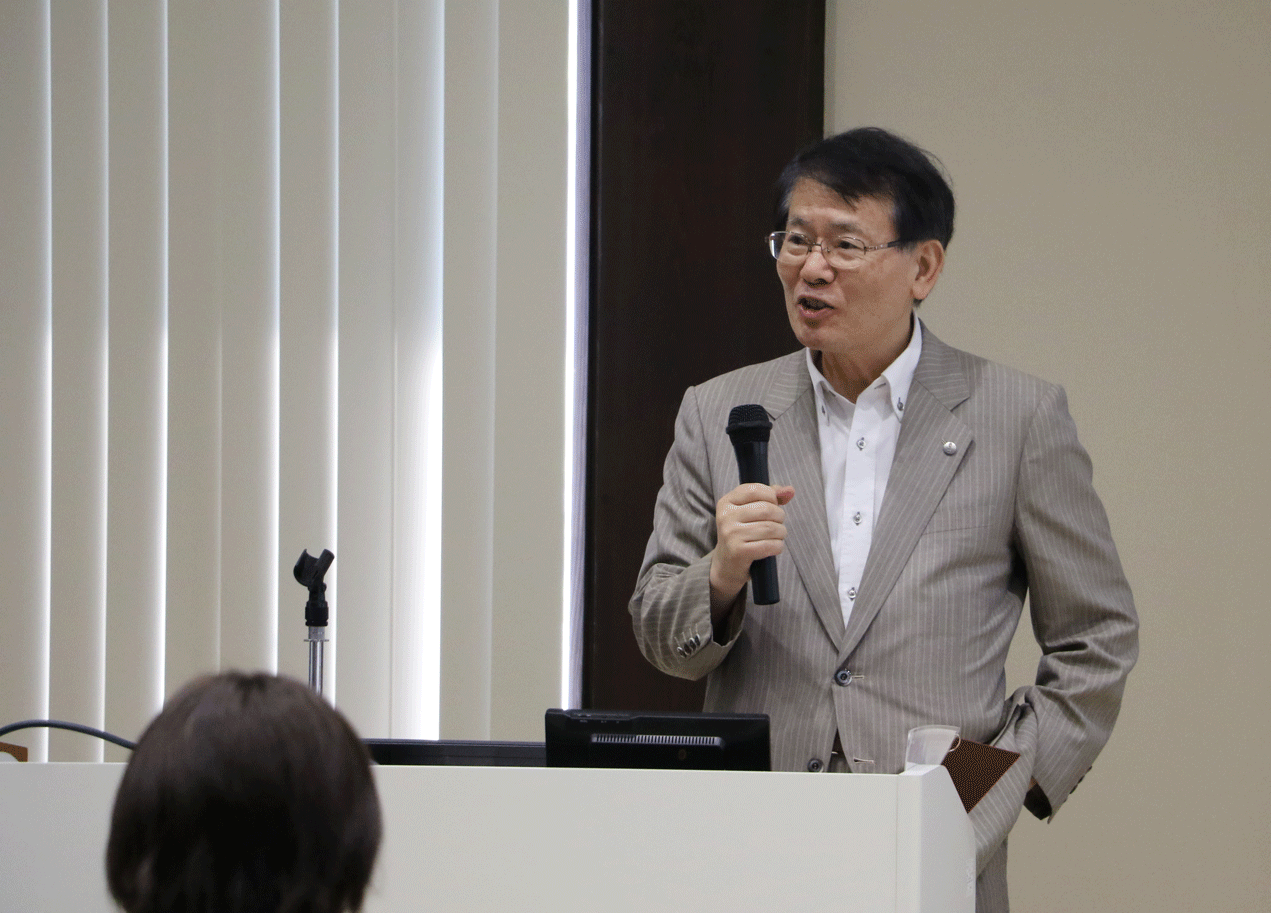
The symposium consisted of three sessions, followed by panel discussions with the speakers. In the first session, “Social business, health, and knowledge networks,” Fumiko Kasuga (Future Earth Global Hub Director, Japan), Peter Daszak (President, EcoHealth Alliance, New York, USA), and Rafiqul Islam Maruf (Health Module, IDS3, Kyushu University, Japan) presented their research activities.
Daszak shared examples of decision making with local stakeholders for awareness-raising and prevention of the spread of pandemics. Kasuga discussed on the topic of knowledge networks with examples from Future Earth’s activities, e.g. Sleeping Financial Giants and the Earth Commission, and on the role of science in the whole processes of decision making. Maruf talked about the concept of Portable Health Clinic (PHC) in Asia and shared a short video from PHC activities in Bangladesh.
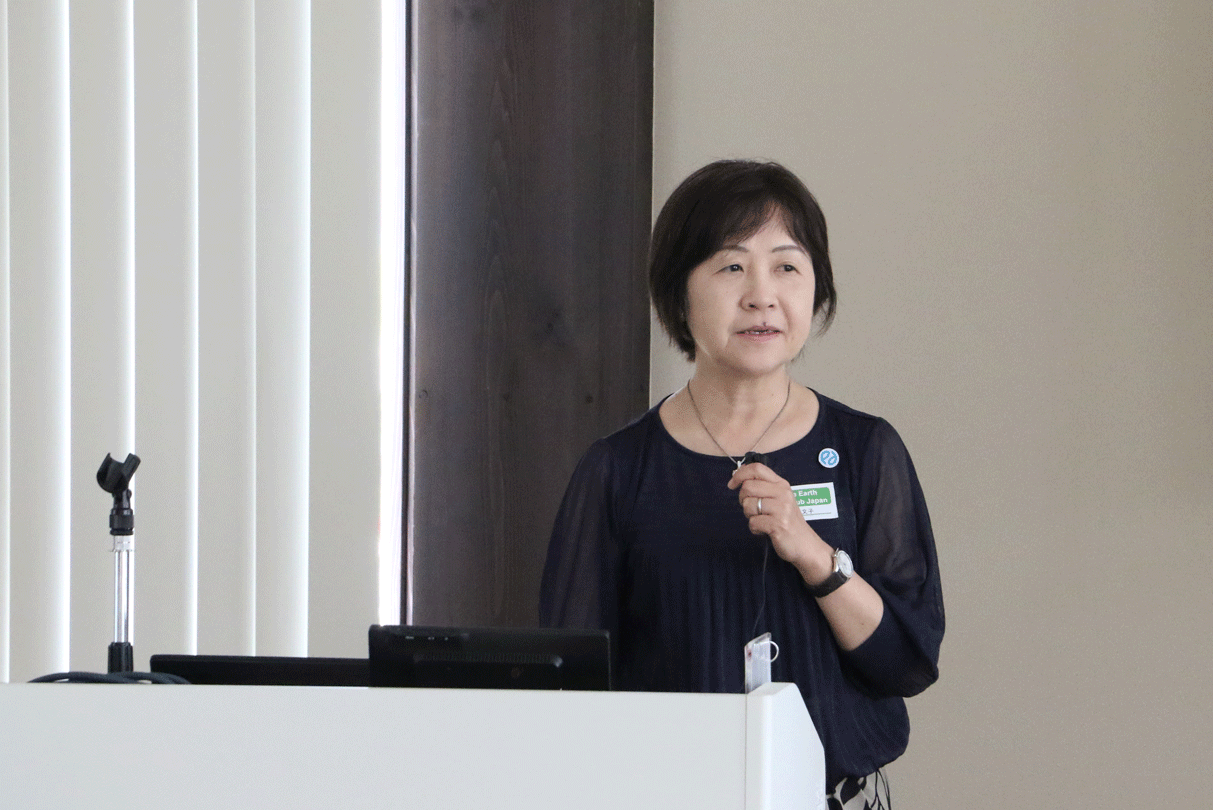
In the second session, “Environmental social problem solving and local knowledge networks,” Anantha Duraiappah (Director, UNESCO, MGIEP, New Delhi, India), Hiroyuki Matsuda (Yokohama National University, Japan), Tadatsugu Hosoya (Environment Module, IDS3, Kyushu University, Japan), and Tetsuji Ota (Environment Module, IDS3, Kyushu University, Japan) gave a presentation.
Duraiappah highlighted an importance of emotional resilience and emotional intelligence. Matsuda discussed feasibility study and emotional empathy among peoples. Hosoya presented a talk about feeding wild animal meat to zoo animals in Japan, and Ota discussed a sustainable community forest management system in Cambodia.
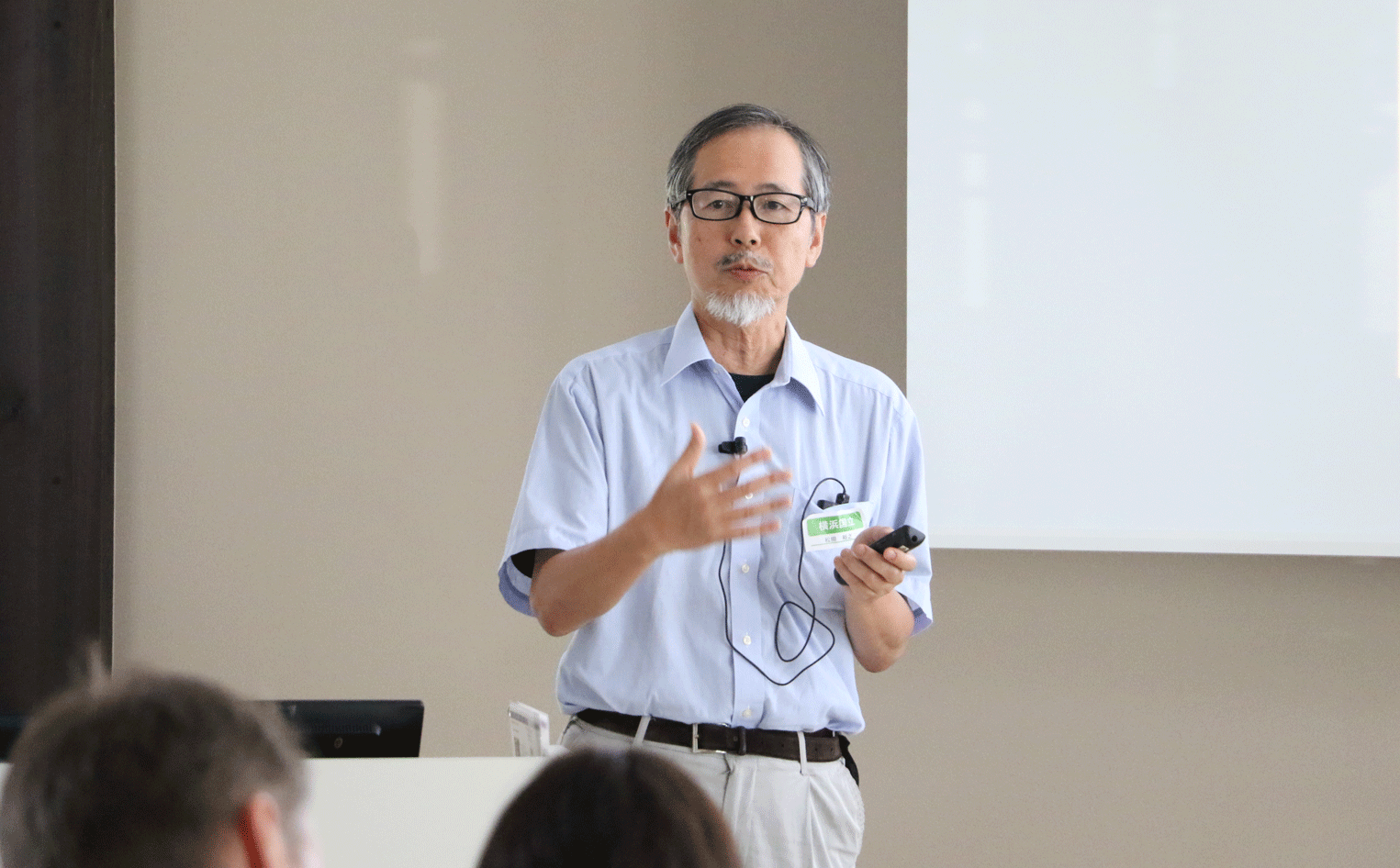
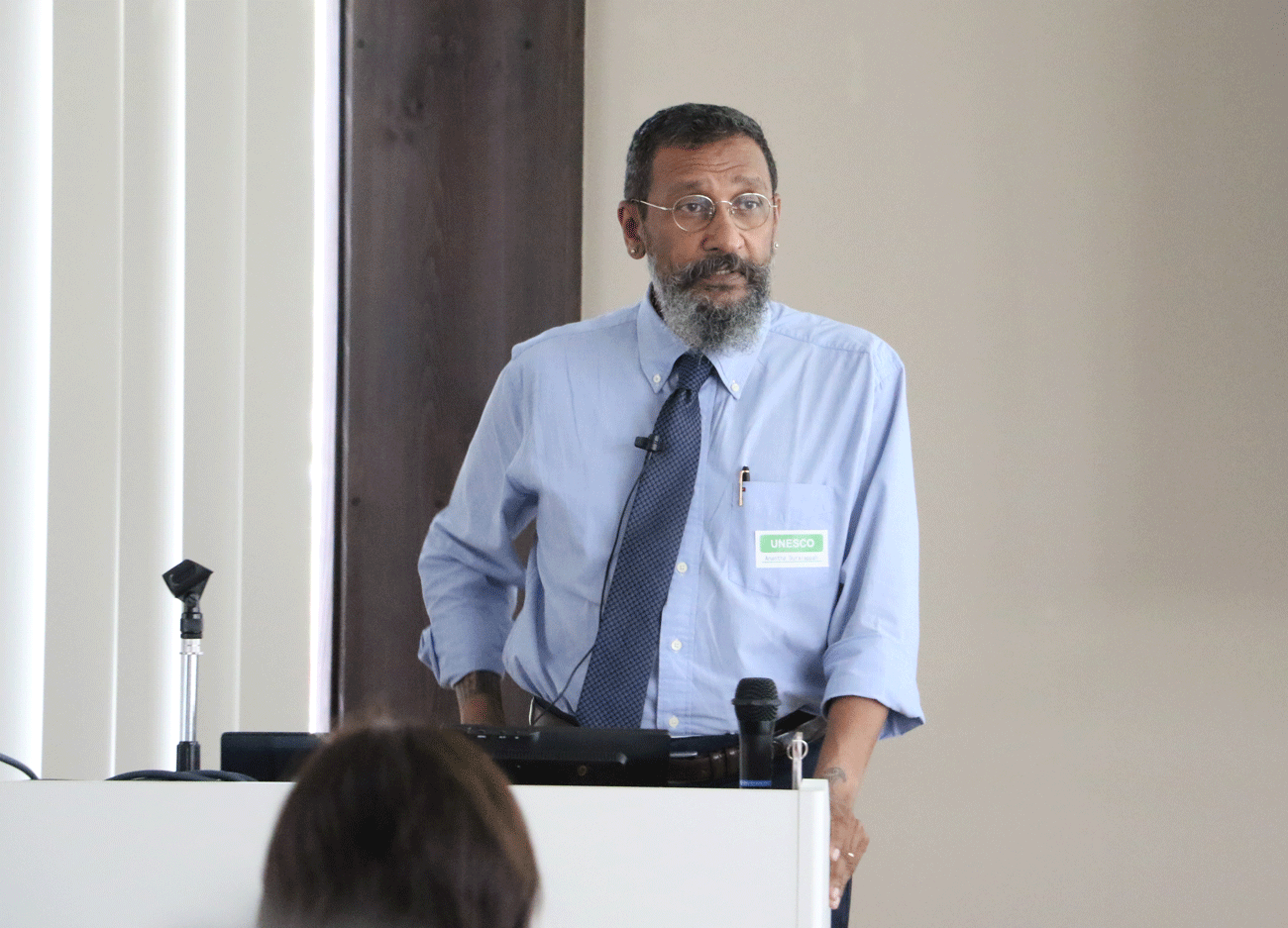
Finally, in the third session, “Decision Science and problem solving,” there were four presentations by Johan Lauwereyns (Kyushu University, Japan), Giles Sioen (Postdoctoral Fellow, Future Earth Global Hub Japan, JSPS-UNU), Junichiro Ide (Disaster Module, IDS3, Kyushu University), and Yukyong Jeong (Governance Module, IDS3, Kyushu University).
Lauwereyns discussed neural mechanisms of perception and decision making. Sioen focused on a systems approach with examples from the Urban and the Health Knowledge-Action Networks. Ide, a remote presenter, talked about hydrological observations and flood risk assessment in Indonesia. Jeong made a presentation on university students volunteer activities in disaster area with example from Kumamoto region.
This symposium provided a great opportunity to stimulate academic debates regarding the social business, social issues, and decision science. Furthermore, the active debate in each session suggested that our academic research caught a significant attention broadly from participants with diverse backgrounds.
The symposium concluded with the closing remarks by Tetsukazu Yahara, director of IDS3.
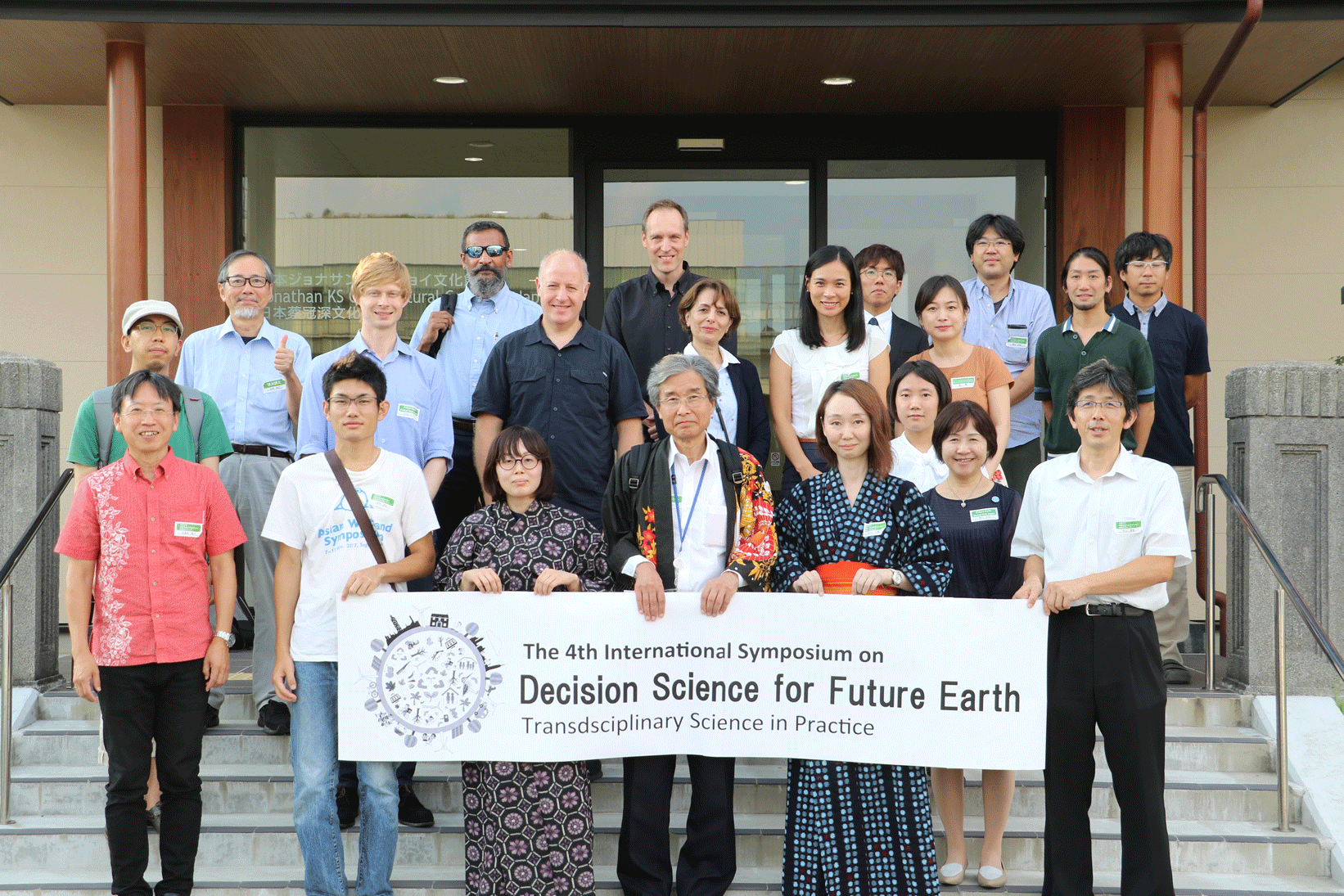
This piece was written by Firouzeh Javadi and Takahiro Murakami from the Institution of Decision Science for a Sustainable Society, Kyushu University.
DATE
August 26, 2019AUTHOR
Firouzeh JavadiTakahiro Murakami
SHARE WITH YOUR NETWORK
RELATED POSTS
Program Now Available for the Year’s Top Sustainability Science and Innovation Event in Finland
Future Earth Members Join UN Ocean Conference in Barcelona
Apply for the 2024 Pathways Autumn School: Transformative Research for a Just World and a Habitable Planet